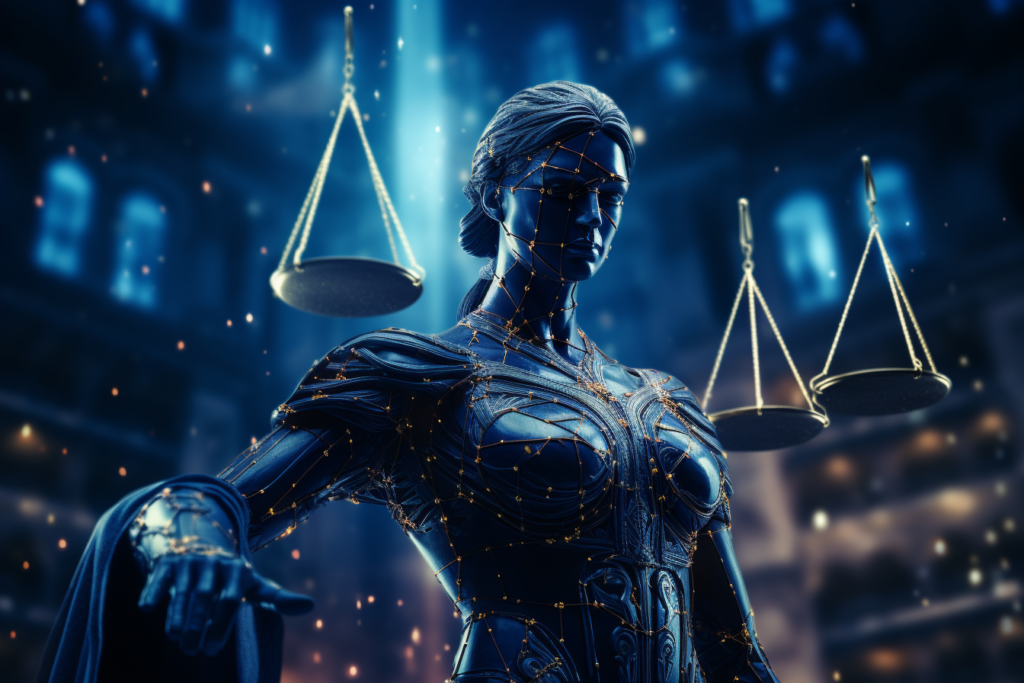share
In a groundbreaking development, a coalition comprising the United States, the United Kingdom, Australia, and 15 additional nations has united to formulate extensive regulations designed to strengthen artificial intelligence (AI) models against potential risks. This joint initiative, outlined in a 20-page document, highlights a shared dedication to ensuring that AI models are inherently secure. Given the rapid advancement in the AI sector, the guidelines underscore the imperative for prioritizing cybersecurity considerations throughout the entire lifecycle of development and deployment processes.
The Urgency of ‘Secure by Design’
The released guidelines provide a roadmap for AI organizations, outlining essential cybersecurity practices that should be integrated into every phase of AI model development. The term “secure by design” underscores the proactive approach advocated by the guidelines, emphasizing that security measures should not be an afterthought but an integral part of the entire AI lifecycle.
The recommendations span from maintaining a vigilant watch over the AI model’s infrastructure to continuous monitoring for tampering post-release, coupled with rigorous staff training on cybersecurity risks.
A Paradigm Shift in AI Development
At this juncture in the advancement of artificial intelligence, a critical phase is evident, as expressed by U.S. Secretary of Homeland Security Alejandro Mayorkas. He acknowledges the significance of cybersecurity in this transformative era, asserting that it plays a crucial role in constructing AI systems that prioritize safety, security, and reliability. Mayorkas underscores the pivotal intersection of artificial intelligence’s development and the imperative need for robust cybersecurity measures to ensure the responsible evolution of this groundbreaking technology.

The guidelines signal a paradigm shift in the AI development landscape, acknowledging that security considerations are not ancillary but foundational. This initiative aligns with the broader global recognition of the need for responsible AI development, reflecting the sentiment that the impact of AI extends far beyond technological advancement and demands careful ethical and security considerations.
Addressing Controversial AI Issues
While the guidelines cover diverse facets of cybersecurity in the realm of AI, certain contentious issues within the AI domain remain unexplored. Particularly noticeable is the absence of explicit recommendations concerning controls on the utilization of image-generating models, apprehensions associated with deep fakes, and the ethical considerations surrounding data collection methods employed in the training of AI models. These matters have prominently figured in recent legal disputes, with AI companies contending with claims of copyright infringement.
The omission of these specific concerns in the guidelines suggests that there is still room for more nuanced discussions and regulatory frameworks addressing the ethical dimensions of AI applications. Striking the right balance between innovation and ethical considerations remains a complex challenge for policymakers and industry stakeholders alike.
Global Collaboration and Industry Involvement
The inclusivity of these guidelines goes beyond domestic boundaries, with endorsers encompassing Canada, France, Germany, Israel, Italy, Japan, New Zealand, Nigeria, Norway, South Korea, and Singapore. This diverse coalition underscores the worldwide consensus on the critical nature of fortifying AI systems. Particularly noteworthy is the active involvement of leading AI companies such as OpenAI, Microsoft, Google, Anthropic, and Scale AI in crafting these guidelines, underscoring the imperative for industry engagement in molding ethical AI standards.
Navigating Regulatory Landscape: EU AI Act and Biden’s Executive Order
The unveiling of these guidelines aligns with notable advancements in the worldwide regulatory landscape for AI. The European Union is currently in the stages of finalizing an extensive regulatory framework intended to govern various AI applications. Concurrently, President Joe Biden of the United States issued an executive order in October to set standards for the safety and security of AI. Nevertheless, both initiatives have encountered resistance from the AI sector, prompting apprehensions about the potential obstacles they may pose to innovation.
The delicate balance between regulation and innovation is a central theme in ongoing discussions about AI governance. Striking a harmonious equilibrium that fosters technological progress while addressing ethical and security concerns is crucial for the sustained development of the AI industry.
A Final Word About the Future of AI: Vitalik Buterin and His Position
In the midst of these regulatory developments, it’s crucial to hear a voice from the community, especially from an expert. Ethereum co-founder Vitalik Buterin has offered his perspective on the trajectory of artificial intelligence.
According to Buterin, AI has the potential to surpass humans as the apex species. He expressed his belief that AI could outpace human intelligence, marking a transformative moment in the evolution of technology.
Buterin’s insights add a layer of complexity to the ongoing discourse surrounding AI regulation, raising questions about the ethical implications and societal impact of increasingly sophisticated AI systems.
As the global community grapples with the implications of rapid AI advancement, collaborative efforts signal a commitment to responsible AI development. We all should admit that balancing innovation with ethical considerations remains a complex challenge, necessitating ongoing dialogue between governments, industry leaders, and experts.
The evolving regulatory landscape underscores the importance of finding a delicate equilibrium that fosters innovation while safeguarding against potential risks.
So, this dynamic AI landscape that creates a huge wave in the community prompts reflection on the profound impact of AI on the future of humanity.









